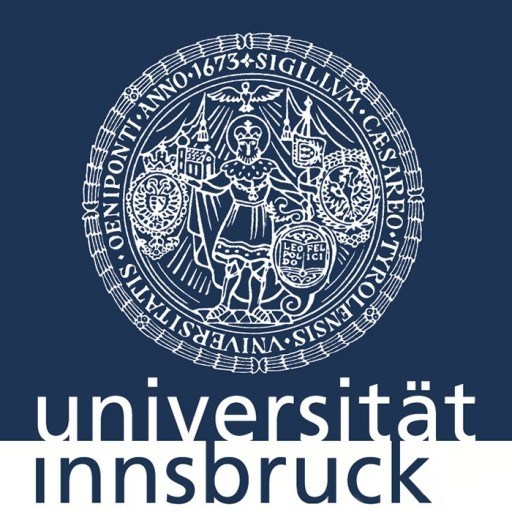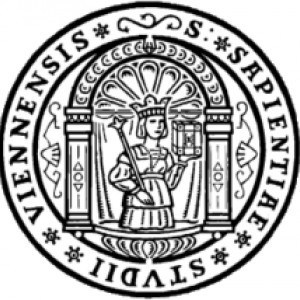Photos of university / #uniinnsbruck
The Bachelor's Programme in Atmospheric Sciences at the University of Innsbruck offers students a comprehensive understanding of the Earth's atmosphere, weather phenomena, climate systems, and related environmental processes. Designed to provide a solid foundation in both theoretical knowledge and practical skills, this programme prepares students for a wide range of careers in atmospheric research, meteorology, environmental consultancy, and climate policy. Throughout the course of study, students will explore key topics such as atmospheric dynamics, thermodynamics, atmospheric chemistry, and remote sensing technologies. They will gain hands-on experience through laboratory work, field studies, and computational modelling, enabling them to analyze and interpret atmospheric data effectively. The programme emphasizes interdisciplinary approaches, integrating physics, mathematics, computer science, and environmental sciences to address complex atmospheric issues. Students also have opportunities to participate in internships and research projects, fostering real-world experience and enhancing employability. The curriculum is designed to adapt to current scientific developments and technological advances, ensuring graduates are well-equipped to contribute to solving pressing global challenges related to weather forecasting, climate change, and sustainable development. Graduates will be prepared for further academic pursuits, including master's and doctoral studies, or for direct entry into professional roles within meteorological and environmental agencies, research institutions, or private sector companies. The University of Innsbruck’s atmospheric sciences programme is committed to fostering an international and supportive academic environment, encouraging collaboration among students and faculty from diverse backgrounds. With its strong emphasis on research, innovation, and practical application, the programme aims to cultivate skilled scientists capable of making meaningful contributions to understanding and protecting our planet's atmosphere.
Compulsory Modules
- PhD-Concept
- Generic Skills
- Analysis and Discussion of Research Results
- Scientific Core Skills
- Participation at the Academic Discussion
- Doctoral Thesis Defence
Dissertation
The dissertation is a piece of scientific work in a special field of the atmospheric sciences which – in contrast to a diploma or master's thesis – serves to prove the student's ability to cope with scientific questions in an independent way.
The dissertation can also consist of articles that are related in terms of subject matter or methods. The quality criteria mentioned in the curriculum are valid.
The student has to propose a team of supervisors, consisting of at least two people (dissertation committee), and to nominate one of them as the supervisor mainly responsible. It is permissible to propose supervisors (with the exception of the main supervisor) from subject‐related fields. In justifiable exceptional cases it is possible for students to propose only one supervisor.
Prior to beginning the work, the student has to communicate the dissertation topic and names of the supervisors in writing to the Director of Studies. If work on the dissertation requires monetary or non‐monetary resources from university institutions, the allocation of these resources is possible only if the head of the respective institution has been informed of the planned allocation and has not vetoed it within one month because of significant negative influence on teaching and research. Topic and supervisors are considered as accepted, if the Director of Studies does not veto them by means of a decree within one month after the receipt of the proposal.
Requirements
- Completed a master's degree in a relevant related field.
- Curriculum vitae,
- As well as (originals or officially certified copies):
- Notice (“Bescheid”) confirming awarding of bachelor’s degree,
- Diploma certificate,
- Diploma Supplement
- Transcript (list of examinations completed).
- Examination Records
- Recognition of exams
- Declaration of Academic Honesty
- Submission of the Dissertation
- Application for the Dissertation's Defense
The University of Innsbruck offers various financing options for students enrolled in the Atmospheric Sciences program. The primary funding sources include government funding, scholarships, grants, and student employment opportunities. Austrian students and EU/EEA students are generally entitled to the same funding options, which can be used to cover tuition fees and living expenses. Tuition fees for non-EU students may vary and are subject to specific regulations; in general, the university charges a nominal fee for international students, with some exemptions available based on merit or financial need.
Students can apply for scholarships provided by the university, such as the Innsbruck International Scholarship or the University of Innsbruck Excellence Scholarship, which aim to support high-achieving students. These scholarships often have specific eligibility criteria, including academic performance and financial need. Additionally, students may explore external funding sources such as Erasmus+ grants, national research grants, or scholarships offered by government agencies and private foundations.
Part-time working opportunities are also available to students during their studies, allowing them to finance their education and living costs. International students can work up to 20 hours per week during semester time and full-time during university breaks, adhering to Austrian work restrictions and visa regulations. The university may also provide assistance in finding part-time employment and internships related to atmospheric sciences to enhance students’ practical experience and financial stability.
Students are encouraged to thoroughly research available funding options early, as application procedures and deadlines vary depending on the source. Additionally, students are advised to maintain good academic standing and meet specific eligibility requirements to retain scholarship benefits. Financial planning is an essential aspect of university life, and students are recommended to utilize university resources such as the student service center for guidance on funding opportunities, budgeting, and financial management. Overall, the University of Innsbruck strives to make atmospheric sciences education accessible through diverse financing opportunities tailored to meet the needs of both domestic and international students.
The Atmospheric Sciences program at the University of Innsbruck offers students a comprehensive education focused on the physical and chemical processes that occur in the Earth's atmosphere. This interdisciplinary field combines elements of physics, chemistry, meteorology, and environmental science to prepare students for critical roles in understanding weather patterns, climate change, air quality, and atmospheric dynamics. The program provides a solid foundation in theoretical concepts, complemented by practical training through laboratory work, field studies, and computational modeling. Students learn to analyze atmospheric data, develop predictive models, and understand the complex interactions within the climate system.
Curriculum highlights typically include coursework in atmospheric physics, climate systems, meteorological techniques, and environmental monitoring. The program emphasizes the importance of sustainable development and the impact of human activities on the atmosphere, preparing graduates for careers in research, environmental consulting, meteorological services, or policy advisory roles. Students also benefit from opportunities to participate in international research projects and collaborations, gaining valuable experience in cutting-edge atmospheric research.
The university’s facilities support hands-on learning with access to modern laboratories and computational resources. The program may also include opportunities for internships with environmental agencies or international climate organizations, enhancing practical skills and professional networks. Graduates of the program are equipped to contribute to addressing global challenges related to climate change, air pollution, and atmospheric hazards, making a meaningful impact on environmental policy and public health. Overall, the Atmospheric Sciences program at the University of Innsbruck provides a rigorous and comprehensive education for those passionate about understanding and protecting the Earth's atmosphere.

